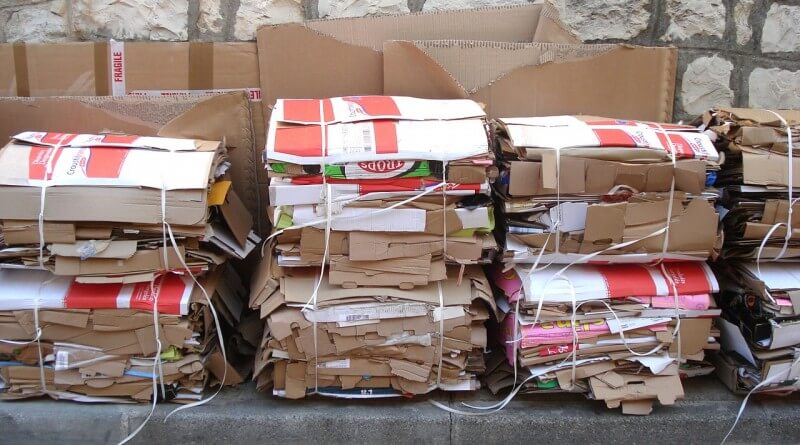Recycling – How are we Doing?
In Amber Valley we recycled a third of our domestic waste. The target for 2022 is 55% so we are some considerable way short of that. But what happens to the stuff we do put in the recycling bin? Veolia collect our recycling and take it to a depot in Ambergate where it is loaded onto larger lorries with other recycling collected in the area and taken to a sorting depot in Mansfield in Nottinghamshire to separate each type of material. Here’s a breakdown:
Cardboard and paper is taken by Veolia. Some paper is taken to a recycling plant in Wales to be turned into newsprint. The remainder is taken to a recycling plant in China to be recycled for use in packaging. It’s shipped on boats that would otherwise be empty returning from delivering goods to the UK. This is more environmentally-friendly than using raw materials to make new products and doesn’t cost council tax-payers any more money.
The cardboard and paper is emptied into a large pulping machine, mixed with water and sodium silicate and heated to 50 degrees centigrade to swell the fibres. It’s spun in a machine to remove staples, spread out, heated and pressed to dry the pulp. New card is fed through a polishing machine to make it smooth before the finished rolls are cut to size.
Here’s more on how paper is recycled:
Glass is turned into new wine bottles at recycling plants in Cheshire, South Kirby in South Yorkshire and Portugal. Glass sent to Portugal is shipped on boats that would otherwise be empty returning from delivering goods to the UK.
It is washed and sorted to remove items such as paper labels or other materials accidentally mixed in and then sorted by colour and taken by conveyor to be remelted.
Here is what happens to your glass recycling:
Steel cans are taken to a recycling plant in Doncaster, South Yorkshire to be turned into new steel products and your aluminium cans are taken to a recycling plant in Warrington, Cheshire to be turned into new drinks cans.
The metal is shredded, cleaned and the coating is removed before they are melted in a furnace. The molten metal flows into moulds and is cooled to form giant blocks called ingots. The ingots are cut into smaller pieces, flattened and formed into new products.
Watch how cans are recycled:
Plastic is taken to a recycling plant in Essex to be turned into new bottles and plastic strapping used in packaging. It is cleaned and sorted by plastic type and colour then shredded, melted and reformed into pellets to make new plastic products.
Here’s what happens to plastic bottles:
Garden cuttings and clippings are taken to an outdoor composting facility in Stanton near Ilkeston to be recycled using a process called Windrow composting. The material is shredded and piled up in rows – known as windrows – on the ground. To speed up the composting process the windrows are turned on a regular basis to improve oxygen content, and distribute heat and moisture throughout the material. This process takes up to 10 weeks to produce soil improver for agriculture.
This can then be used in a range of different applications, such as for agriculture, for land reclamation and as an ingredient in some multipurpose composts you can buy at a garden centre.
Most types of garden waste can be recycled, including bark, flowers, grass and hedge cuttings, leaves, plants, small branches, twigs and weeds. If you are unable to compost at home, you can take it to your local garden waste recycling point or put it into your garden waste collection scheme, if you have one, where it will then be taken to a central composting facility to be processed. See how garden waste is turned into compost:
It is admirable that Derbyshire County Council are putting so much detail online. You can find out more at:
In future articles we’ll examine how we can all improve our recycling rate by wasting less and reusing as much as possible. Let’s see if Belper can be a shining example to the rest of Amber valley and Derbyshire!
By David George


GDPR, Your Data and Us: https://nailed.community/gdpr-your-data-and-us/